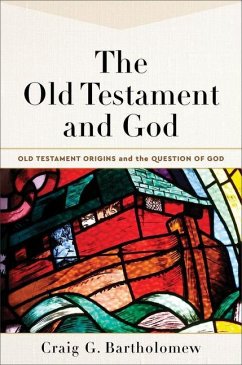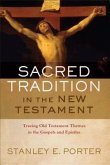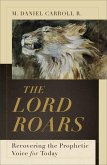"Essential reading for all scholars and serious students alike" In The Old Testament and God, Craig Bartholomew examines what we should do with the Old Testament, argues for a critical realist approach, situates the Old Testament against the worldviews of the ancient Near East, and explores Yahweh as he comes to us in the Old Testament. This volume is the first in a four-volume project that explores the question of God and what happens to Old Testament studies if we take God and his action in the world seriously. "Within the sometimes-bewildering world of Old Testament scholarship, with its modern and postmodern presuppositions, Bartholomew charts a new way forward, one that takes fully seriously the historical, literary, and theological dimensions of the Old Testament--and above all takes the God of the Old Testament fully seriously as one who acts and reveals. For anyone who finds the Old Testament irrepressibly fascinating, this will be an exciting, learned, and coherently argued book." --Richard Bauckham, University of St. Andrews (emeritus) "Bartholomew brings his wide knowledge and insight to the question of God in the Old Testament. This book, the first of four, is a big book in the best sense of the term. He considers the most important questions and utilizes the best approaches to our study of the Old Testament. In my opinion, Bartholomew sets the study of God in the Old Testament on its proper foundation, which makes this essential reading for all scholars and serious students alike." --Tremper Longman III, Westmont College (emeritus) "Only Bartholomew could have written this book! The range of interlocutors is vast; Old Testament scholars mingle with philosophers, literary critics, and historians of the ancient Near East, and Bartholomew's immensely creative and constructive mind orchestrates a powerful symphony by means of a running commentary on the scholarship. At the heart of the matter is the possibility--indeed the firm conviction--that the living God has revealed himself to Israel. This book should fund a new and multifaceted conversation grounded in the question of God." --Matthew Levering, Mundelein Seminary "Many of us were apprenticed into the guild of Old Testament scholarship under the paradigm of alleged academic 'objectivity' in which 'God' could not be the subject of a sentence that presumed his living reality and power, other than as a fictive character in the narrative. Bartholomew challenges that paradigm in a way that enables an encounter with the living Scriptures to be an authentic encounter with the voice of the living God." --Christopher J. H. Wright, Langham Partnership
Hinweis: Dieser Artikel kann nur an eine deutsche Lieferadresse ausgeliefert werden.
Hinweis: Dieser Artikel kann nur an eine deutsche Lieferadresse ausgeliefert werden.








